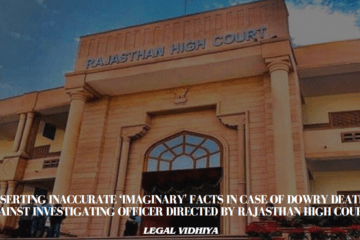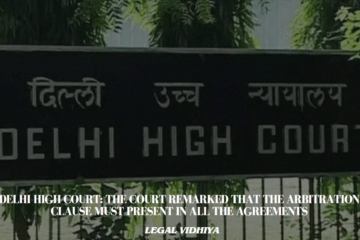
Juris Cognita Publications is accepting submissions for a Call for Chapters for a Book on Human Rights Versus Digital Rights: The Impact of Digital Technology
Digital technology is transforming the practice of fundamental rights like freedom of expression and access to information, while also introducing new rights. As society embraces the digital age, laws are being developed to protect and ensure fair and open access to online information. Digital rights extend the principles established in the Universal Declaration of Human Rights to include the internet. Their goal is to ensure that everyone has access to the internet and promote responsible internet usage as a shared resource. Technological advancements are constantly evolving, and every improvement necessitates the development of a fresh set of regulations. With the growing number of limitations, it becomes crucial to establish digital ethics to address potential human rights violations. However, because there is no global agreement on digital rights, countries are creating their own digital rights charters.
ABOUT THE BOOK
The book explores the profound impact of digital technology on human rights in the digital era. This book delves into the ethical and legal challenges arising from the rapid advancement of technologies such as artificial intelligence, big data, and the internet of things, and their implications for digital human rights. Through a multidisciplinary approach, it examines how these technologies can both enhance and threaten human dignity, offering insights into how societies can navigate this complex intersection to ensure that technological progress is aligned with human values and dignity. This book is essential reading for policymakers, legal scholars, technologists, and anyone interested in the future of technology and its impact on humanity.
THEME AND SUB-THEME
Digital Technology and Digital Human Rights
SUB-THEME
- The Charter of Digital Rights
- Digital Ethics and Human Rights.
- Legal Challenges of AI and Technology.
- Right to Digital Education
- The Right to A Digital Identity
- The Right to Cyber Security
- The Right to Privacy
- The Right to Protection Against Misinformation
- The Right to The Protection of Personal Data
- The Right to Access Digital Public Services
- The Right to Freedom of Content Creation and Protection
- The Right to Digital Heritage
- The Right to Digital Freedom
- The Right to Be Forgotten
- The Right to Anonymity
- Protection of Minors
- UNDP Digital Strategy (2022-25)
- Mass Surveillance Programme- Violations in The Name of Security
- Human Rights Protection as a National Security Priority
GUIDELINES
- The Manuscript should not exceed 3500-word limit.
- Authors are initially requested to submit the Abstract only. Once the abstract is selected, the authors shall receive a selection email, after which they can start submitting their full manuscript.
- For submissions of manuscript, must be followed by an Abstract of 250-300 words and Keywords (5). The abstract will be the part of the Manuscript later at the time of submission of the full manuscript.
- Author(s) should not mention their personal details at any places in the manuscript. Personal Details and Institutional Affiliations should be mentioned in a separate cover letter.
- All headings in the manuscripts should be properly formatted.
- The main body text in the manuscript must be in Times New Roman in a font size of 12, 1.5 line spacing and in justified alignment. For footnotes, maintain Times New Roman Style with a font size of 10 and 1.0 line spacing. For Headings, Times New Roman style must be followed with a font size of 14 and must be Bold and Underlined.
- Footnotes should conform to Blue Book Citation Format.
- Manuscripts are to be submitted in .doc No other format would be accepted.
- A maximum of 3 authors are allowed.
- Plagiarism of more than 20% shall not be acceptable by any means. The Manuscript should also be free from grammatical, spelling and other errors.
HOW TO SUBMIT
- Authors should email their Abstract in .doc or .docx, i.e., the word document file only.
- “Name of the Author(s)_Title of the Manuscript” shall be the subject line of the email.
- Please enclose the cover letter along with the abstract.
- Submissions shall be made at: jcpdigitalrights@gmail.com
FORMAT
The book will be printed with ISBN Number.
FEES
There is no publication or submission charge. However, consumers must pay a little fee as determined by the publisher if they want to buy a hard copy of the book and certificate.
IMPORATANT DATES
- Submission of Abstract: 31st May, 2024
- Notification of Acceptance of Abstract: 1st June, 2024
- Final Chapter Submission: 30th June, 2024
- Acceptance/Rejection Mail: 3rd July, 2024
EDITORS:
- DR. MANDEEP KAUR: Assistant Professor, School of Law, Mahindra University, Hyderabad.
- MR GOVIND KUMAR CHATURVEDI: Privacy Professional & Dual Advocate (Canada and India), Founder of Creators Legal
STUDENT EDITORS:
- Mr. Chinmay Goswami
- Mr. Tirtha Banerjee
- Ms. Zeenat Parveen
DOUBLE BLIND PEER REVIEW
Once the submissions are shortlisted by the Editors, they will be sent for double peer review. The peer review process being anonymous (blind), the name of the author shall be concealed. Each submission shall be reviewed by a referee, invited by International Journal of Legal Affairs and Exploration.
The reviewer shall evaluate the submission and submit the report on the basis of:
- Relevance of the Topic
- Clarity of Research
- Quality of Papers in terms of originality- Content-Scholarly contribution
- Quality of Paper Structure
- Analysis, Argumentation and Language
- Presentation and Referencing/ Footnoting
PUBLISHER
JURIS COGNITA PUBLICATIONS
CONTACT
For any queries, reach out to us via email at jcpdigitalrights@gmail.com or through WhatsApp at: +91-6291532259.
More details: https://ijlae.com/book-on-humanrights-versus-digitalrights/




0 Comments